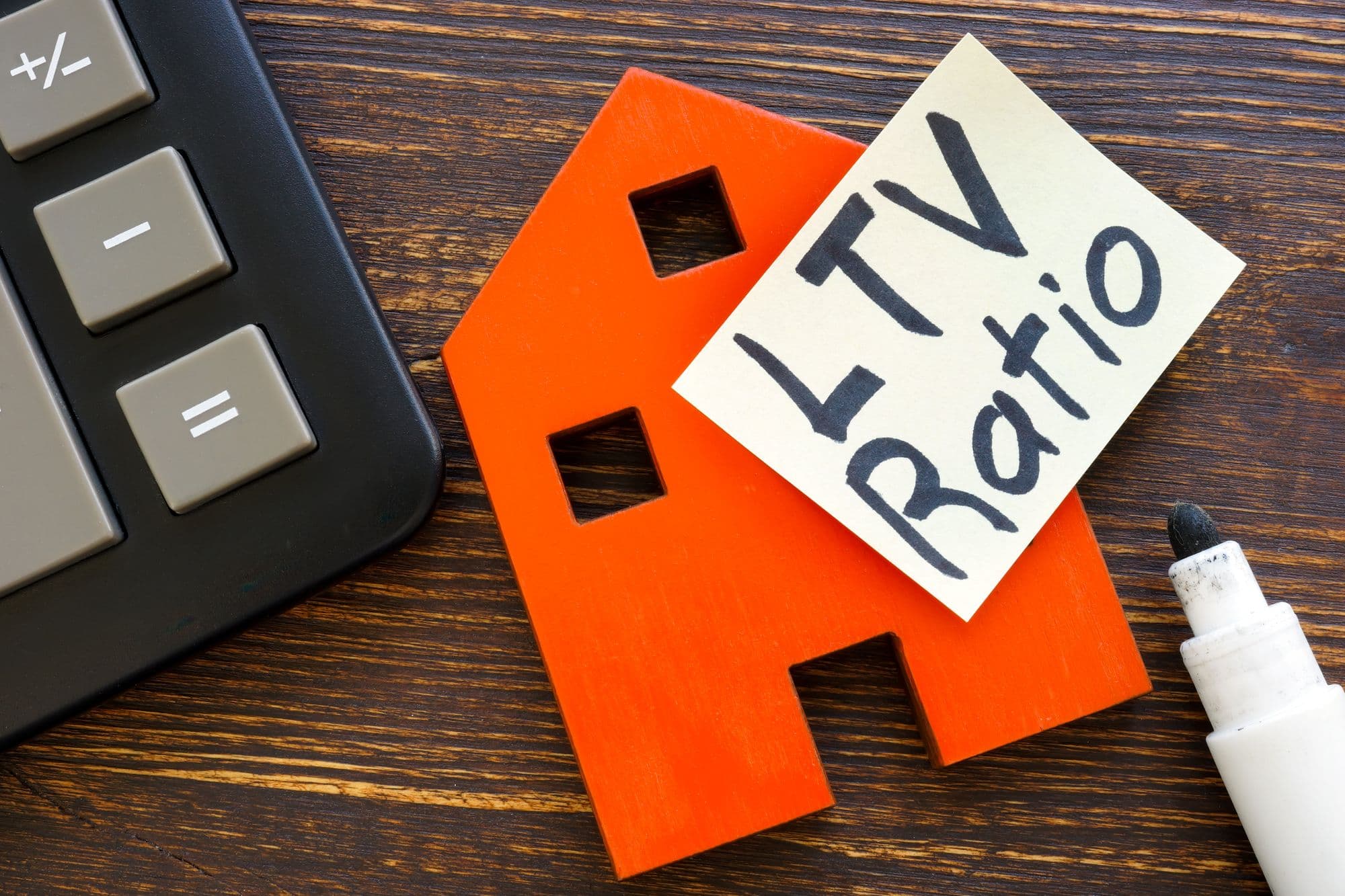
What Are Mortgage Points and Are They Worth Buying?
Mortgage points let you buy a lower interest rate. Learn how they work, how much they cost, and whether buying points actually saves you money.

With mortgage rates higher than they’ve been in years, many homebuyers are looking for ways to reduce their monthly payment. One option that’s gaining a lot more attention is mortgage points, a tool that allows you to buy down your interest rate in exchange for an upfront fee at closing.
On paper, paying extra at closing to get a lower rate sounds simple. But whether mortgage points actually save you money depends on how long you keep the loan, how quickly you break even, and how much your lender reduces the rate for each point.
This guide breaks down how mortgage points work, what they cost, how to calculate your break-even point, and, most importantly, when buying points makes sense and when it’s a waste of money.
What Are Mortgage Points?
Mortgage points, also known as discount points, are optional fees you can pay your lender at closing to reduce the interest rate on your mortgage. One point typically costs 1% of your loan amount, and it usually lowers your rate by 0.25%, though this varies by lender and market conditions.
Think of it as paying interest up front to secure a lower monthly payment for the life of your loan.
How They Work
- You pay the lender more at closing.
- In exchange, they give you a lower interest rate.
- Your monthly payment drops for the full loan term.
- You eventually “break even” when your monthly savings equal what you paid upfront.
If you stay in your home long enough, the savings can be substantial.
How Much Do Mortgage Points Cost?
The cost is always tied to the size of your loan.
- 1 point = 1% of the loan amount
- 0.5 points = 0.5% of the loan amount, and so on.
Example of Mortgage Point Costs
| Loan Amount | Cost for 1 Point |
|---|---|
| $250,000 | $2,500 |
| $400,000 | $4,000 |
| $600,000 | $6,000 |
The real value comes down to how much the lender reduces your interest rate per point. Some lenders offer a deeper reduction than others.
How Buying Mortgage Points Affects Your Monthly Payment
Here’s a practical example of how points change your payment.
- Loan Amount: $400,000
- Term: 30 years
- Rate Without Points: 7.00%
- Rate With 1 Point: 6.75%
- Cost of 1 Point: $4,000
Monthly Payment Comparison
- 7.00% rate → $2,661/month
- 6.75% rate → $2,594/month
Monthly savings: $67
Annual savings: $804
This is where the break-even point becomes important.
How to Calculate Your Break-Even Point
The break-even point tells you how long it takes for your monthly savings to equal the upfront cost of the points.
Using the previous example:
- Upfront cost: $4,000
- Monthly savings: $67
- Break-even: $4,000 ÷ $67 ≈ 59.7 months (just under 5 years)
If you keep the mortgage longer than that, you’ll save money. If you sell or refinance earlier, you’ll lose money.
This is the most important factor in deciding whether points are worth it in your given scenario.
Are Mortgage Points Worth Buying?
Buying mortgage points can be worth it, but only under certain conditions. The key question is: Will your long-term savings outweigh your upfront cost?
When Mortgage Points Are Worth It
Mortgage points often make financial sense if:
- You plan to stay in the home for 5+ years
- You want the smallest monthly payment possible
- You have extra cash after down payment and closing costs
- The lender offers a strong rate reduction per point
- You won’t refinance anytime soon
In these situations, buying points can save tens of thousands over the life of your mortgage.
When Mortgage Points Are Not Worth It
You should think twice if:
- You plan to move within a few years
- You expect to refinance if rates drop
- You're already stretching your budget for closing costs
- Your lender offers a weak rate reduction
- You need cash for renovations, emergencies, or higher-interest debt
In these cases, the upfront money is often better used elsewhere.
Mortgage Points vs. Increasing Your Down Payment
Homebuyers often compare these two strategies because both reduce your monthly payment.
Buying Points
- Lowers your interest rate
- Saves more the longer you keep the loan
- Best if you’re confident you’ll stay put
Larger Down Payment
- Lowers the loan amount
- May remove mortgage insurance (big savings)
- Boosts home equity immediately
Which is better?
It honestly depends on your situation. If you're close to eliminating PMI with an extra down payment, that’s often the smarter move. On the other hand, if PMI is unavoidable, buying points may offer better long-term value.
How Many Mortgage Points Can You Buy?
Most lenders allow you to purchase up to 3 points, but the benefit usually decreases with each additional point.
For example:
- First point → lowers rate by 0.25%
- Second point → lowers rate by 0.20%
- Third point → lowers rate by 0.125%
That diminishing return means most buyers usually stick to 1–2 points at most.
Do Mortgage Points Work on FHA, VA, and USDA Loans?
Yes, most government-backed programs allow mortgage points:
- FHA: Points can be used to buy down the rate
- VA: Points allowed, but seller-paid points are restricted
- USDA: Points must meet USDA affordability guidelines
Government loan buyers often see meaningful savings from even small rate reductions.
Seller-Paid Mortgage Points
A powerful but often overlooked strategy is asking the seller to pay for points as part of your negotiation. These are called seller concessions (you would be surprised how many sellers are more than willing to do this in order to close the deal).
If a seller is willing to buy points for you:
- You get a lower rate
- You keep your cash
- You break even immediately
This is a no-brainer if the seller is offering concessions anyway.
How to Know If Mortgage Points Make Sense for You
Before deciding, run through this checklist:
- Do I expect to live in this home for at least 5 years?
- Do I want a lower payment, even if it means paying more upfront?
- Do I have cash left after covering closing costs, moving expenses, and my emergency fund?
- Does the lender offer a strong rate reduction for each point?
- Am I unlikely to refinance soon?
If you answered “yes” to most of these, mortgage points may be a smart long-term investment.
Final Thoughts: Should You Buy Mortgage Points?
Mortgage points are one of the few tools that give homebuyers real control over their interest rate, and they can dramatically reduce the total cost of homeownership when used strategically. But they’re not right for every situation.
The decision comes down to one question: How long will you keep the mortgage?
If the break-even math makes sense and you have the budget, points can be one of the smartest financial moves you make when securing a home loan.
If you're unsure, ask your lender to provide a side-by-side comparison of rate options with and without points. Seeing the real numbers for your specific situation is the easiest way to make a confident, informed choice.
FAQs
1. Do mortgage points always lower your interest rate?
Yes. Discount points are specifically designed to reduce your mortgage interest rate. However, the exact reduction varies by lender and market conditions; so one point might lower your rate by 0.25% with one lender but only 0.20% with another. Always compare lender rate sheets before purchasing points.
2. Are mortgage points tax-deductible?
Mortgage points may be tax-deductible if they are discount points paid on a primary residence and meet IRS requirements. Points paid for investment properties or points that function as lender fees (origination points) typically aren’t deductible. Always confirm with a tax professional.
3. Can I roll mortgage points into my loan instead of paying upfront?
Some lenders allow you to finance points into your mortgage, but doing so increases your loan amount and slightly reduces the financial benefit. The break-even point becomes longer because you’re effectively paying interest on the points. Paying upfront produces the best savings if you can afford it.
4. How many mortgage points should I buy?
Most buyers benefit from purchasing one, occasionally two points at most. Beyond that, the reduction in interest rate usually diminishes and the break-even period becomes too long. A lender can show you the rate improvement per point so you can evaluate the return on investment.
5. What happens to my points if I refinance or sell the home?
If you refinance or sell before reaching your break-even point, you lose money on the points you purchased. The savings stop once your loan ends. This is why buyers who expect to move or refinance soon should avoid buying points altogether.



